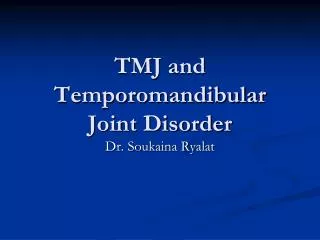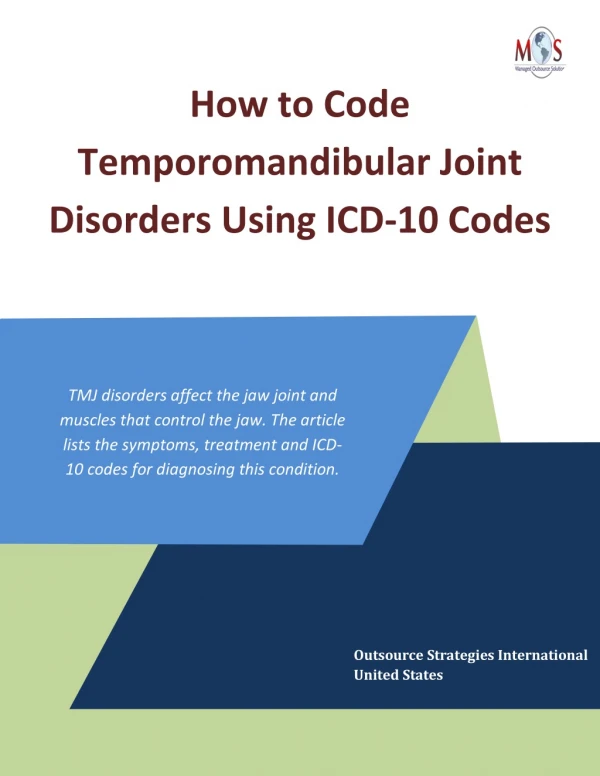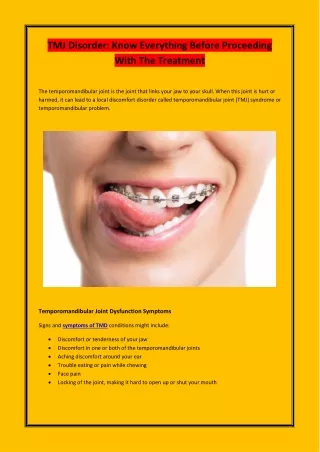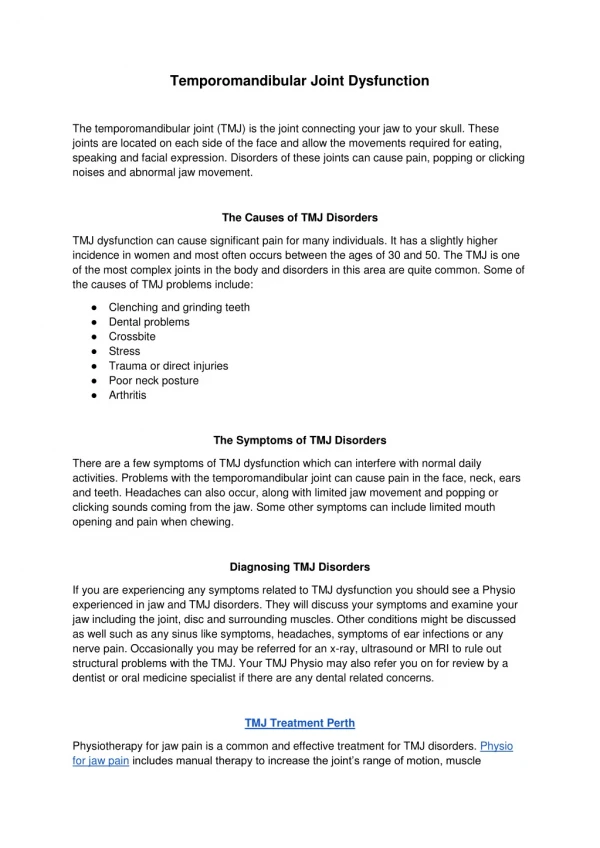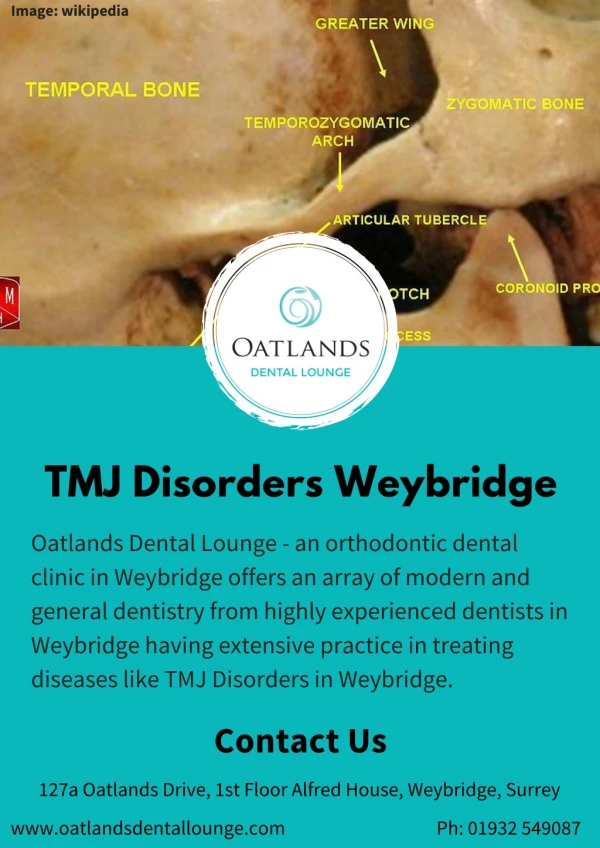Tmj, How To Treat Tmj, Teeth Grinding, How To Stop Grinding Teeth In Sleep, Tmj Splint
http://tmj-pain-relief.good-info.co Tmj, How To Treat Tmj, Teeth Grinding, How To Stop Grinding Teeth In Sleep, Tmj Splint, What Are The Symptoms of TMJ? The temporomandibular joint disorder is an affliction of the hinge joint (TMJ) that connects the jaw to the skull. The TM joint facilitates all movements of the jaw and therefore, a TMJ disorder might interfere with the most basic functions like eating and talking. To get timely help for this condition, it is essential to get it diagnosed at an early stage. Thus, recognizing the symptoms of TMJ disorder is the first step towards healing it. Most of the symptoms are likely to occur on or around the jaw area. If you are suffering from TMJ disorder, there are chances that you will feel discomfort in your head, face, mouth, eyes, ears and even back. Contrary to popular belief, toothache is often a symptom rather than a cause of the TMJ disorder. The most common symptoms of TMJ disorder are clicking or grating noises on opening and closing the mouth. These noises occur when there is a slight dislocation of the jaw bones. They herald the onset of a TMJ disorder and must be paid attention to immediately. For convenience of understanding, the symptoms can be divided into categories, based on which area they are exhibited. These categories are as follows: 1.Symptoms of the face and neck: These symptoms include pain in the jaw, jaw joint, teeth and in the muscles of the cheek. More complicated symptoms would involve uncontrollable tongue and jaw movements, teeth clenching during sleep and locking of the jaw resulting in the inability to open or close the mouth properly. Frequent coughing, intense salivation and voice moderations are among the lesser diagnosed but highly significant symptoms of TMJ disorder.
★
★
★
★
★
179 views • 4 slides
